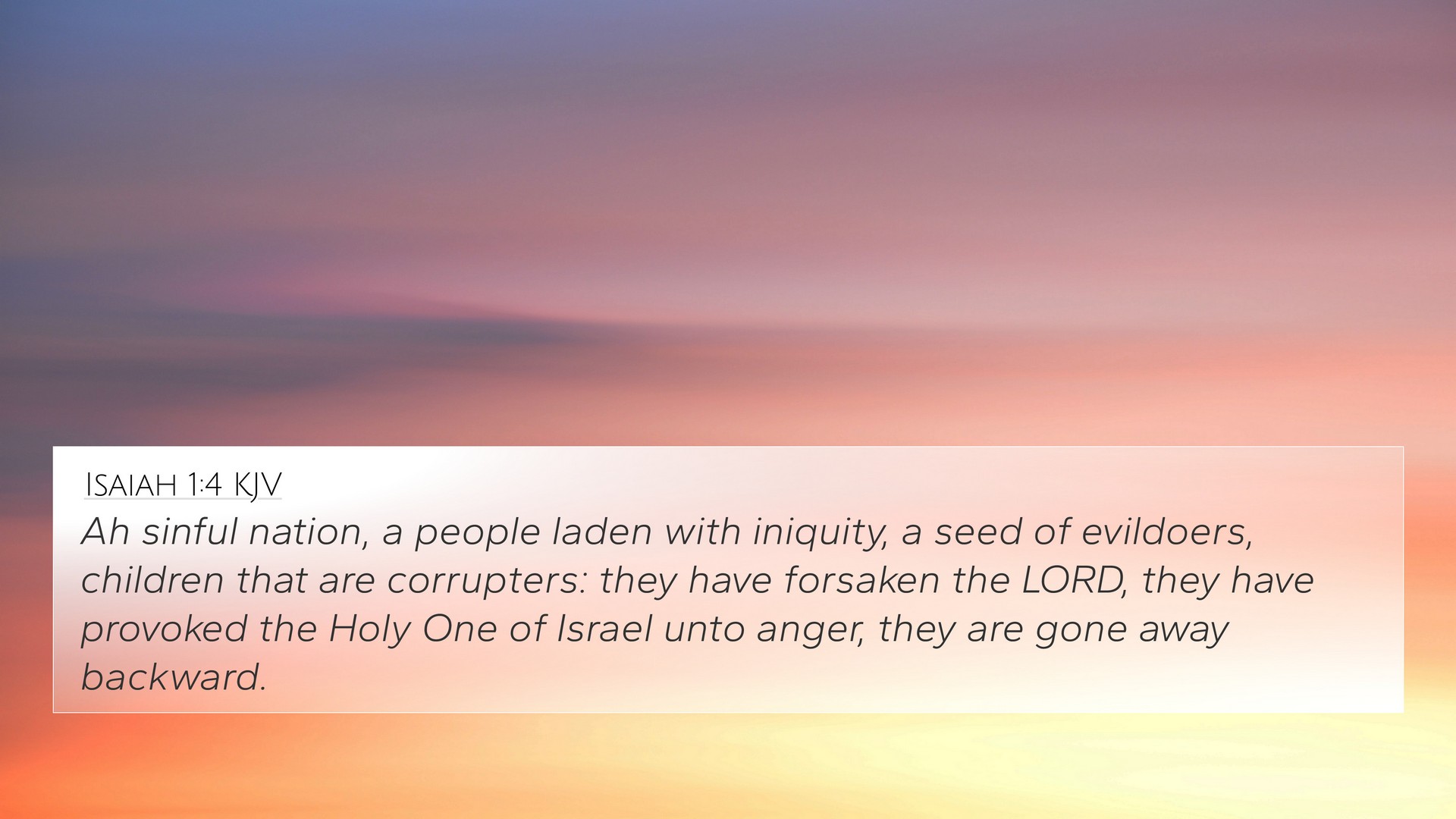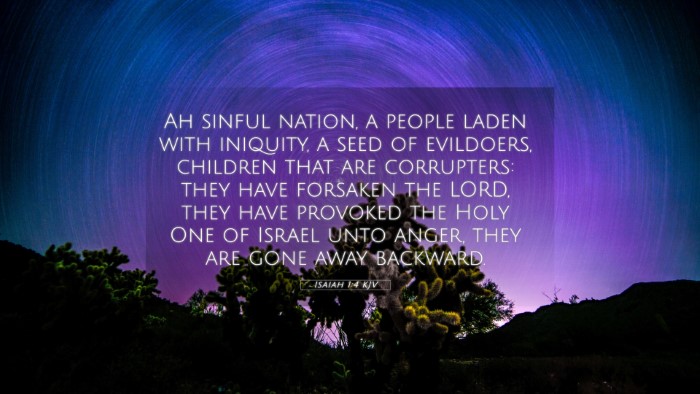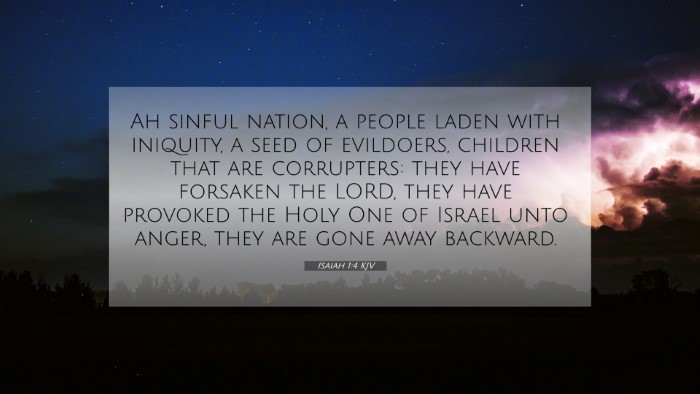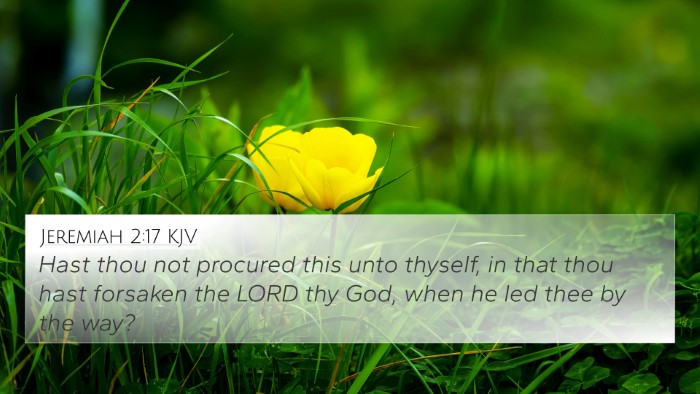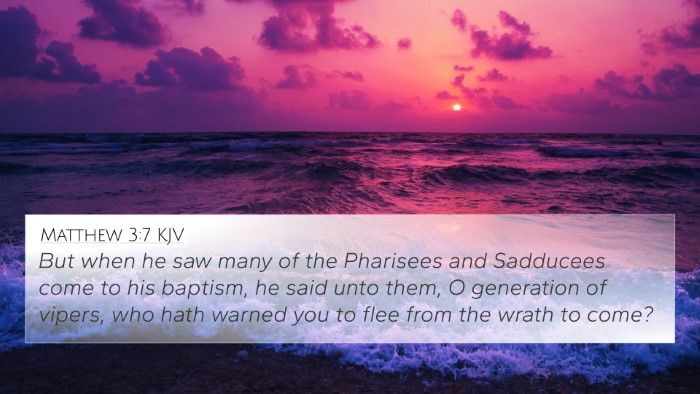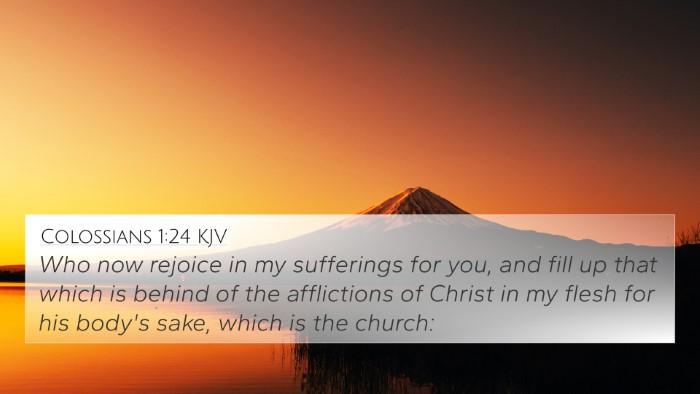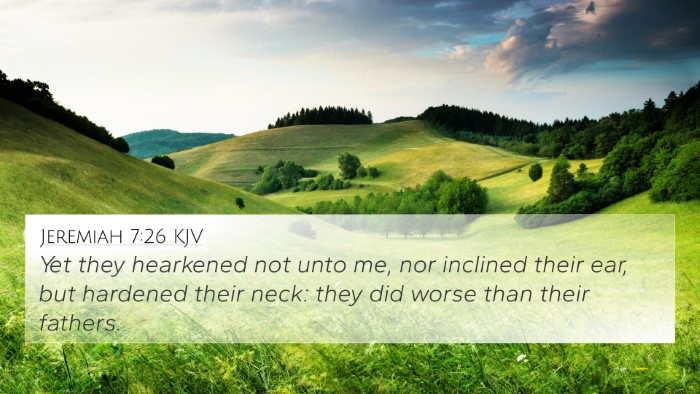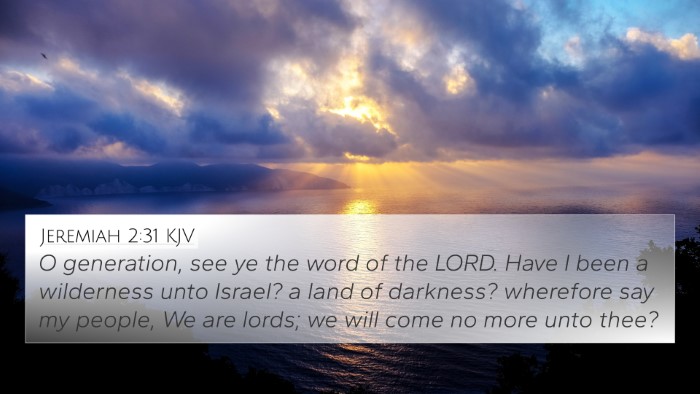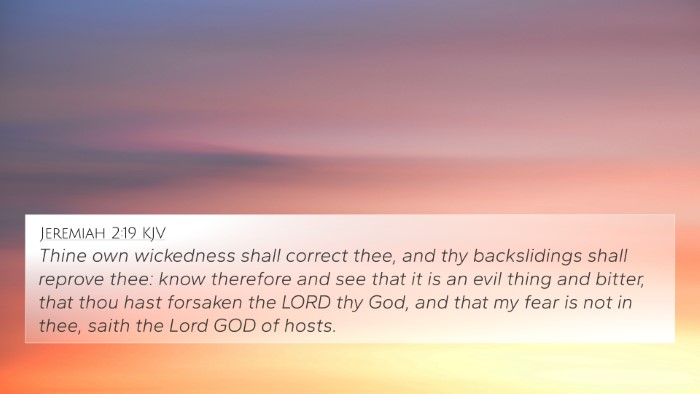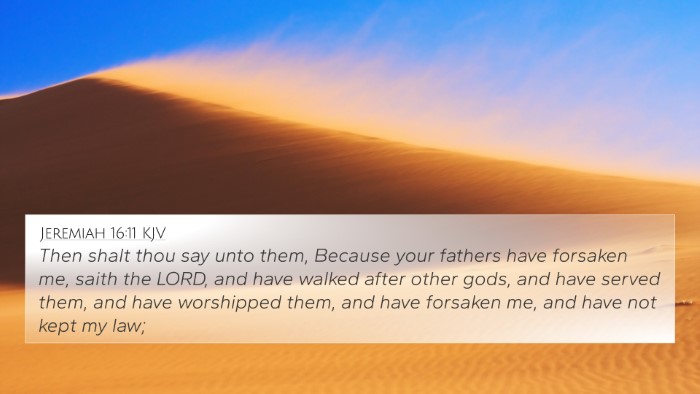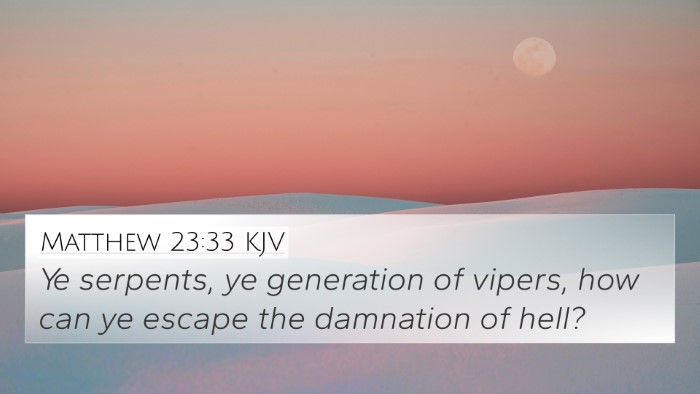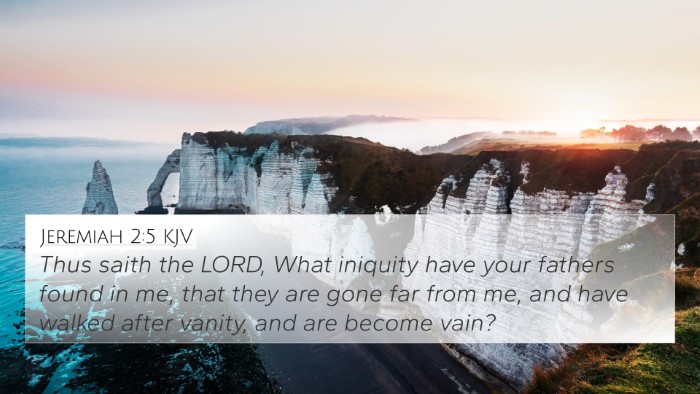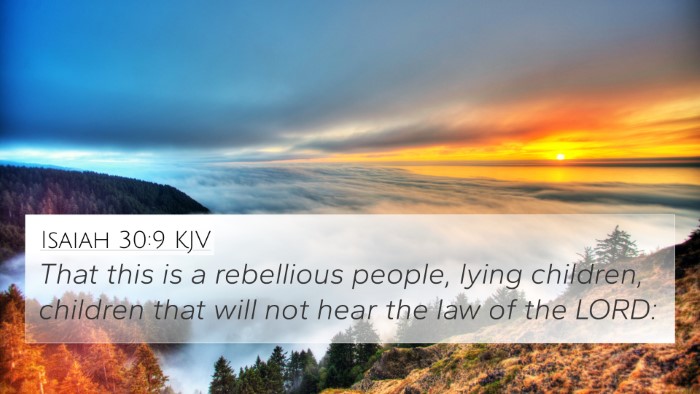Understanding Isaiah 1:4
Isaiah 1:4 states: "Alas, sinful nation, a people laden with iniquity, a seed of evildoers, children that are corrupters: they have forsaken the LORD, they have provoked the Holy One of Israel unto anger, they are gone away backward."
Summary of Isaiah 1:4
This verse serves as a poignant lament about the spiritual condition of the people of Israel. The Prophet Isaiah addresses their sinful state, highlighting a series of grave issues including their iniquity, corruption, and rebellion against God.
Key Themes
- Sinfulness: Isaiah opens by identifying Israel as a "sinful nation," indicating a collective departure from righteousness.
- Iniquity and Corruption: The description of the people as "laden with iniquity" and "seed of evildoers" emphasizes their pervasive sinfulness.
- Rejection of God: The phrase "they have forsaken the LORD" reveals a conscious choice to turn away from God and His commandments.
- Anger of God: By provoking "the Holy One of Israel" to anger, it suggests a serious breach in the relationship between God and His people.
- Backwardness: "They are gone away backward" implies a regression in their moral and spiritual state.
Bible Verse Cross-References
Isaiah 1:4 connects to several other scriptures that illuminate the themes of sin, rebellion, and the consequences of turning away from God:
- Jeremiah 5:23-24: "But this people hath a revolting and a rebellious heart; they are revolted and gone." This verse parallels Israel's rebellion against God.
- Isaiah 30:9-10: "That this is a rebellious people, lying children, children that will not hear the law of the LORD." This emphasizes their refusal to listen to God’s law.
- Hosea 4:6: "My people are destroyed for lack of knowledge." This reflects the consequences of forsaking God and His truth.
- Romans 1:21: "Because that, when they knew God, they glorified him not as God, neither were thankful." This shows the continuity of human rebellion against God through time.
- Matthew 23:37: "O Jerusalem, Jerusalem, thou that killest the prophets, and stonest them which are sent unto thee." This highlights the historical pattern of rebellion and corruption.
- 2 Chronicles 24:20: "And the Spirit of God came upon Zechariah the son of Jehoiada the priest, which stood above the people, and said unto them, Thus saith God, Why transgress ye the commandments of the LORD?" The call to obedience resonates with Isaiah’s message.
- Galatians 6:7: "Be not deceived; God is not mocked: for whatsoever a man soweth, that shall he also reap." This principle pertains to the consequences of wrongdoing.
Insights from Public Domain Commentaries
Combining insights from Matthew Henry, Albert Barnes, and Adam Clarke reveals a comprehensive understanding of this verse:
Matthew Henry’s Commentary
Henry emphasizes the deep sorrow Isaiah feels over the waywardness of his people. He points out that the terms used—such as "sinful," "laden," and "evildoers"—illustrate not only the state of the people but also God’s perspective on their disobedience. Henry notes that such rebellion provokes divine anger, which serves as a warning for all nations who turn from God.
Albert Barnes’ Commentary
Barnes highlights the severe nature of Israel’s sin. He interprets "forsaken" in the context of a covenant relationship, suggesting that the people are not simply ignoring God but are actively denying the covenant they made with Him. He also situates the verse within the broader narrative of Israel’s history, showcasing it as part of a cycle of rebellion and grace.
Adam Clarke’s Commentary
Clarke focuses on the emotive aspects of the text, describing it as a lamentation. He stresses that Isaiah's pronouncement of judgment is not only a rebuke but also serves as a call to repentance. Clarke also notes the references to "children" and "seed" point to the generational impact of sin, indicating how widespread the corruption has become.
Conclusion
Isaiah 1:4 is not merely a statement about Israel's failure; it is a deeply personal cry from a prophet who desires restoration for his people. By cross-referencing with other biblical texts, one can glean a richer sense of the thematic connections within the Bible that link human sinfulness with divine judgment and the hope of redemption.
Tools for Bible Cross-Referencing
To better understand the interconnections between biblical verses, one can utilize various resources such as:
- Bible concordances for thematic search.
- Bible cross-reference guides to navigate related scriptures.
- Cross-reference Bible studies to deepen understanding.
- Online Bible reference resources for expanded insights.
How to Use Bible Cross-References
To efficiently engage in cross-referencing:
- Identify key themes or words in the verse.
- Utilize tools to find related passages.
- Compare different books of the Bible for broader understanding.
- Reflect on the implications of these connections for personal faith and community teaching.
